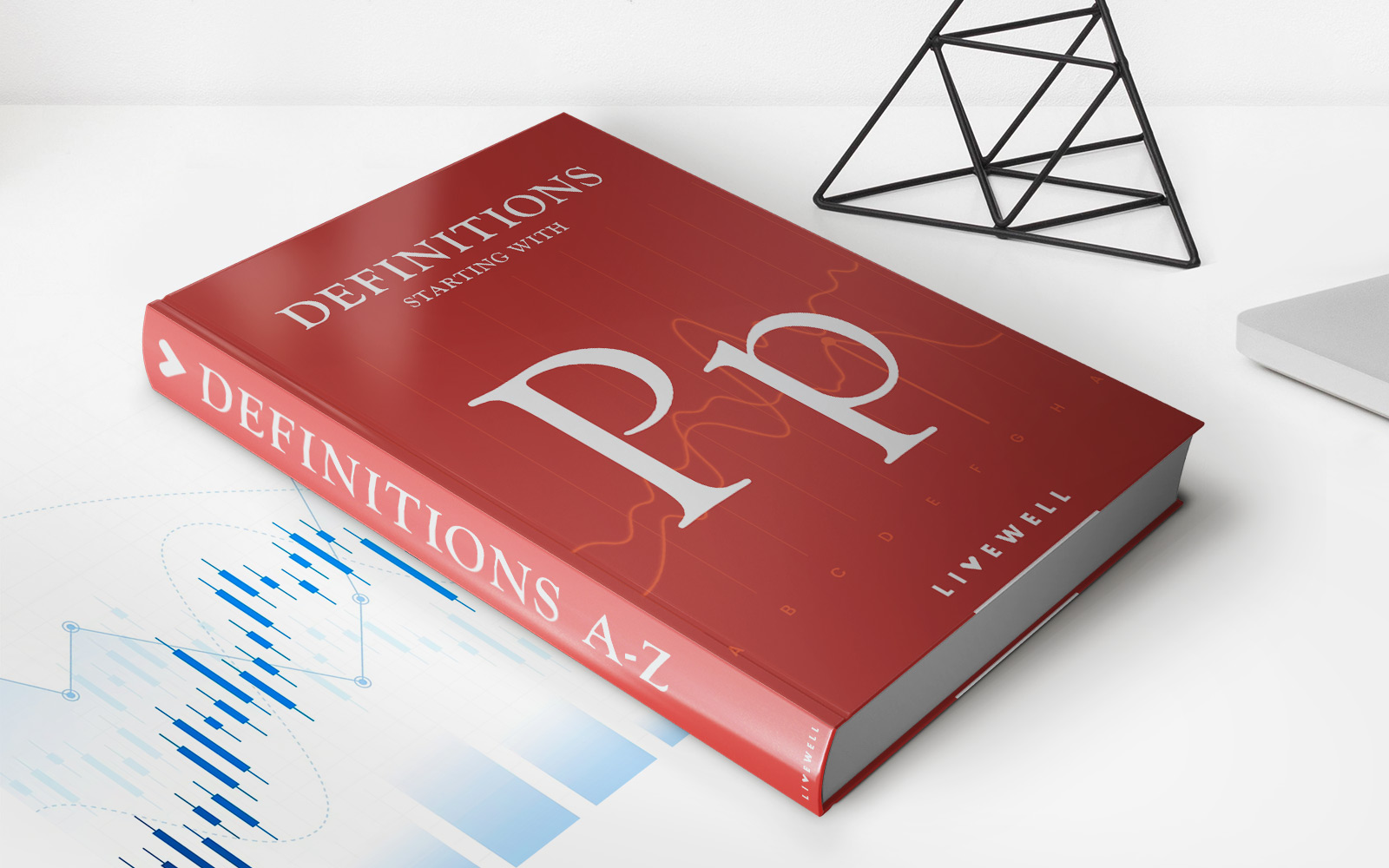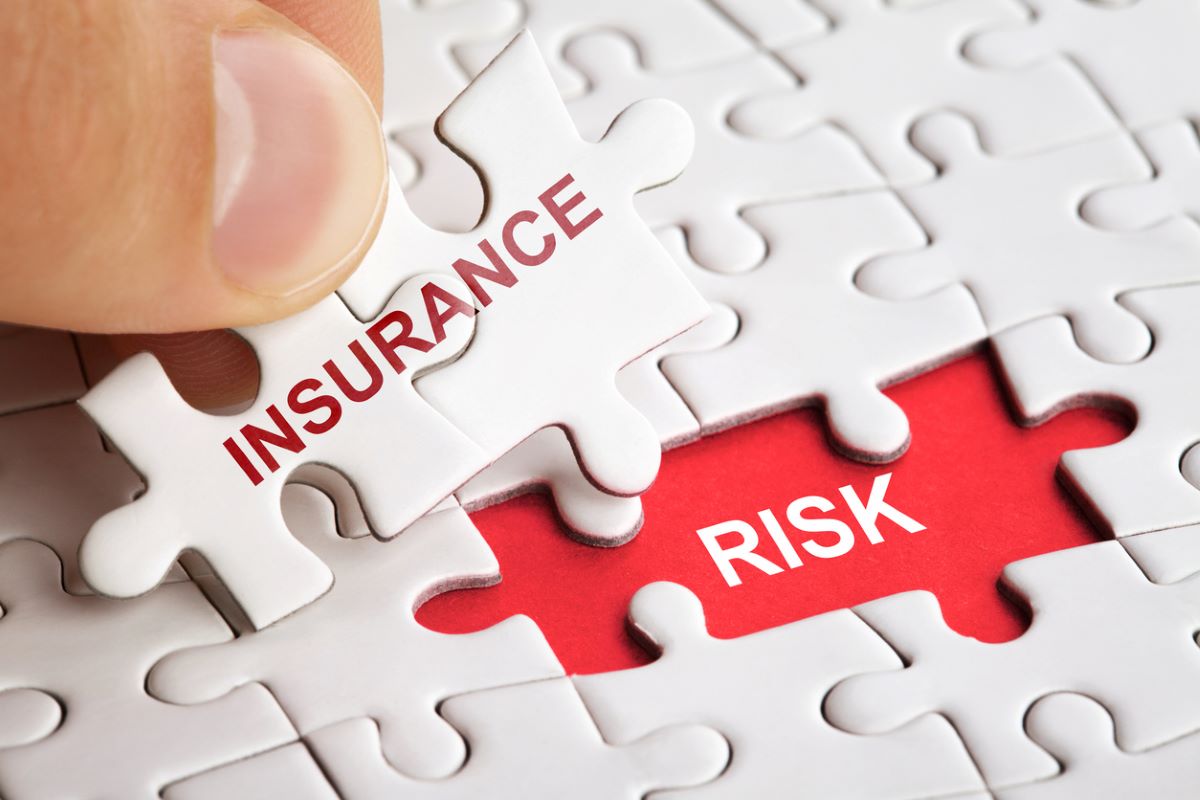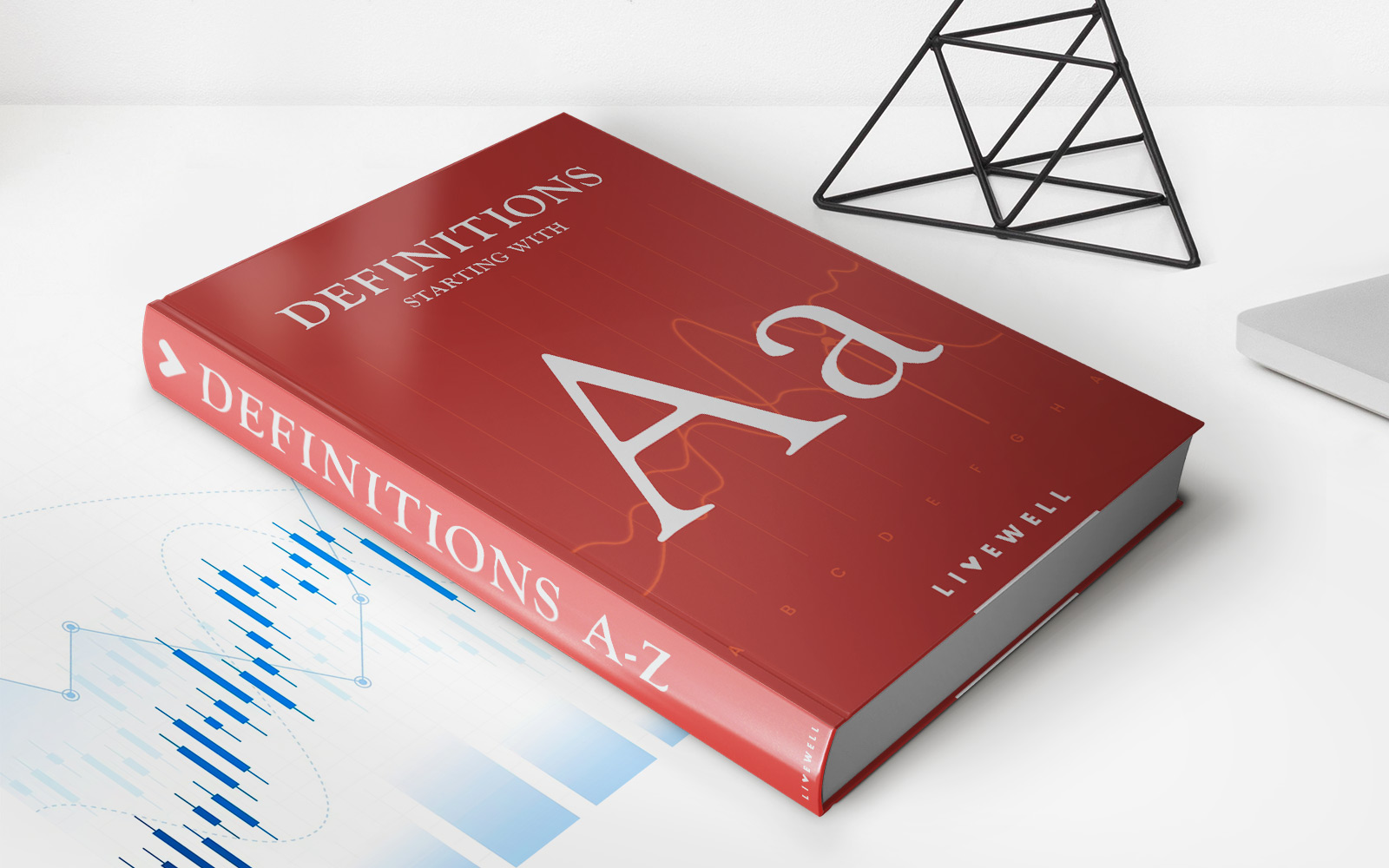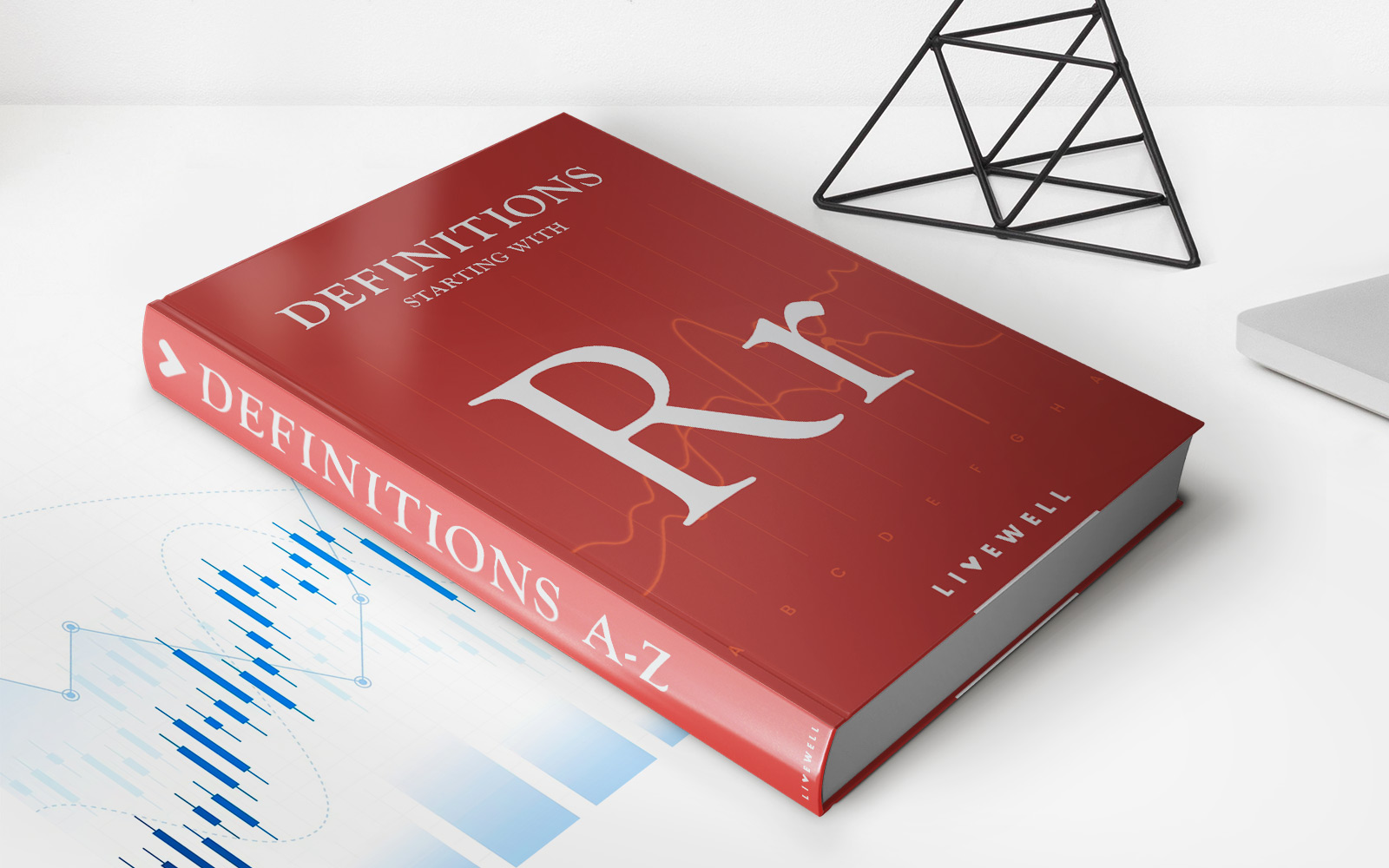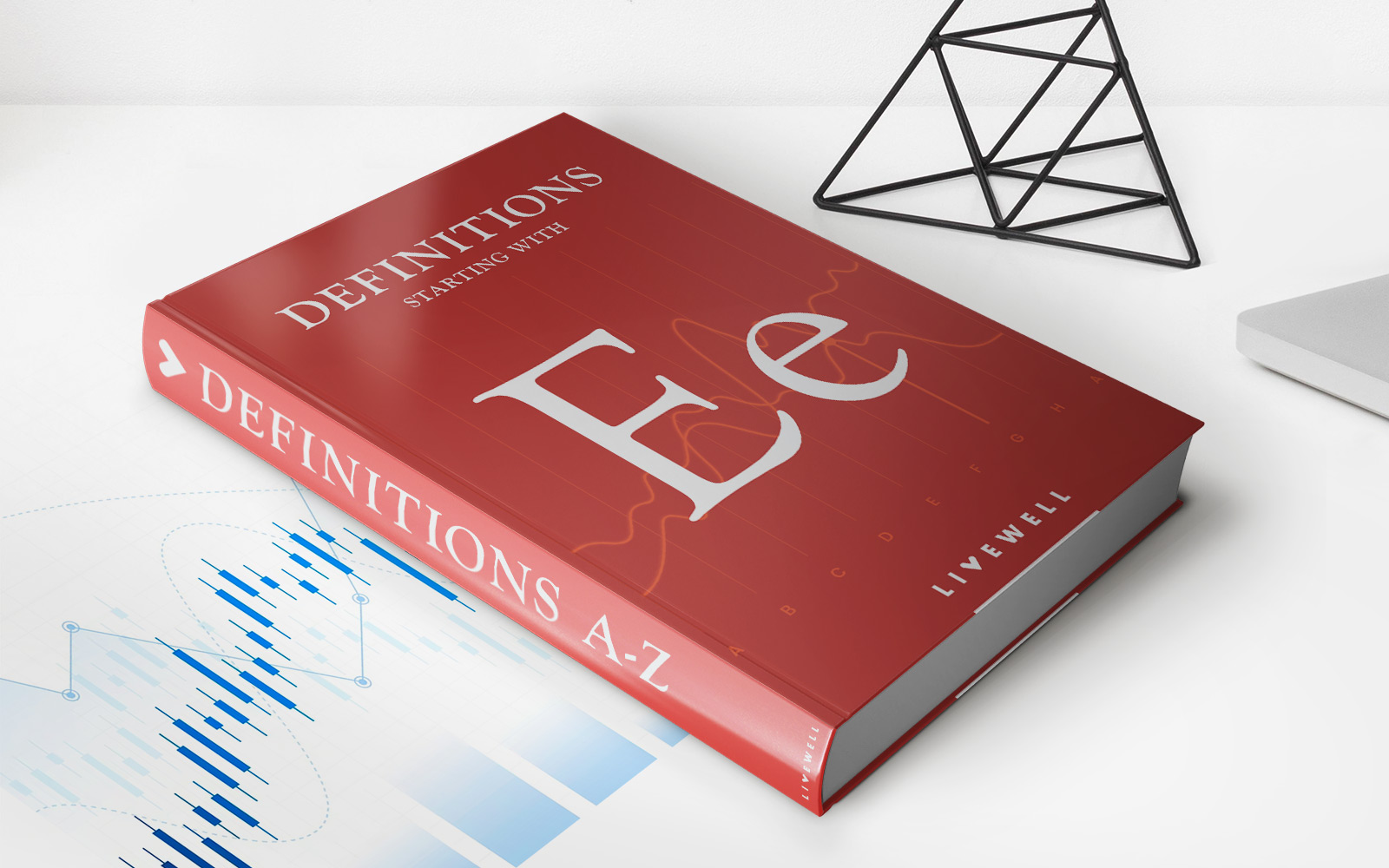

Finance
What Is Excess Liability Insurance?
Published: November 16, 2023
Excess liability insurance provides additional coverage beyond standard policies, protecting your financial assets in case of unexpected events. Find out more about this important aspect of finance.
(Many of the links in this article redirect to a specific reviewed product. Your purchase of these products through affiliate links helps to generate commission for LiveWell, at no extra cost. Learn more)
Table of Contents
- Introduction
- Definition of Excess Liability Insurance
- Coverage Limits and Exclusions
- Key Features of Excess Liability Insurance
- Benefits of Excess Liability Insurance
- How Excess Liability Insurance Works
- Types of Excess Liability Insurance
- Factors to Consider Before Purchasing Excess Liability Insurance
- Conclusion
Introduction
Welcome to the world of finance, where understanding the intricacies of different insurance policies can make a significant impact on your financial well-being. In this article, we will delve into the realm of excess liability insurance – a crucial element in safeguarding your assets and protecting yourself against unforeseen circumstances.
Life is unpredictable, and accidents can happen when you least expect them. Whether you’re a business owner or an individual, you need to be prepared for any eventuality. While basic insurance policies provide a certain level of coverage, they may not be enough to protect you in case of a catastrophic event or a lawsuit with substantial financial implications.
This is where excess liability insurance comes into play. Also known as umbrella insurance, excess liability insurance provides an extra layer of protection above and beyond your primary insurance policies. It acts as a safety net, extending the coverage limits and filling in any gaps that may exist in your existing insurance coverage.
Imagine a scenario where you are involved in a car accident, and your auto insurance only covers up to $500,000 in damages. However, the total cost of the injuries and property damage incurred by the other party surpasses this amount. In such a situation, excess liability insurance would kick in to cover the remaining balance, providing you with much-needed financial protection.
Excess liability insurance is not limited to personal use; it is also essential for businesses. Running a business entails certain risks, which can lead to lawsuits and massive legal costs. Having extensive liability coverage can shield your business from financial ruin, ensuring that you can continue operations without facing severe financial setbacks.
Now that we have a basic understanding of what excess liability insurance is, let’s explore its definition in more detail, coverage limits, key features, benefits, how it works, types available, and what factors you should consider before purchasing this type of insurance.
Definition of Excess Liability Insurance
Excess liability insurance, also commonly referred to as umbrella insurance, is a type of insurance policy that provides additional coverage beyond the limits of your primary insurance policies. It acts as a secondary layer of protection, offering extended liability coverage for personal and commercial policies.
The primary purpose of excess liability insurance is to protect individuals and businesses from financial losses that exceed the limits of their primary insurance policies. While your existing insurance policies such as auto, homeowners, or general liability insurance provide essential coverage, they may have limitations in terms of the maximum payout amount.
Excess liability insurance steps in when the liability claims exceed the limits of your primary policies. For instance, if you have an auto insurance policy with a liability limit of $500,000 and you’re involved in a serious car accident where the other party claims $1 million in damages, your primary auto insurance would cover the first $500,000. However, the remaining $500,000 would be covered by your excess liability insurance, alleviating the financial burden on you.
It’s important to note that excess liability insurance typically covers liability claims, including bodily injury, property damage, libel, slander, defamation, and even certain legal costs. However, it does not provide coverage for claims related to professional errors, intentional acts, or criminal activities.
Excess liability insurance is not limited to personal use; businesses can also benefit from this type of coverage. Commercial umbrella insurance serves as an extra layer of protection beyond the limits of primary business insurance policies, such as general liability, professional liability, or commercial auto insurance. It can safeguard businesses from potentially devastating liability claims that exceed their primary insurance coverage.
Overall, excess liability insurance provides peace of mind by offering an additional layer of protection against unforeseen circumstances and unexpected financial burdens. It ensures that you have substantial coverage in place to address any liability claims that surpass the limits of your primary insurance policies.
Coverage Limits and Exclusions
Excess liability insurance provides coverage that extends beyond the limits of your primary insurance policies. However, it’s crucial to understand the coverage limits and exclusions of this type of insurance to make informed decisions and ensure adequate protection.
The coverage limits of excess liability insurance refer to the maximum amount that the policy will pay out in the event of a claim. These limits typically range from $1 million to several million dollars, depending on your specific needs and the insurance provider. Higher coverage limits may be available for businesses or individuals with substantial assets to protect.
Excess liability insurance is designed to provide a safety net when the liability claims exceed the limits of your primary insurance policies. For example, if your auto insurance has a liability limit of $500,000 and the claim against you exceeds this amount, your excess liability insurance would cover the remaining balance, up to the coverage limits specified in your policy.
It’s important to note that excess liability insurance does not typically cover every type of claim. There are certain exclusions to be aware of. Common exclusions may include intentional acts, criminal behavior, professional errors or omissions, and damage to your own property.
Additionally, it’s crucial to review the policy details and understand any specific exclusions that may be outlined. Some policies may have exclusions related to certain industries or activities, such as hazardous sports or high-risk occupations. It’s essential to have a clear understanding of what is covered and what is not to avoid any surprises if a claim arises.
Another factor to consider is the underlying coverage requirement. Most excess liability insurance policies require you to maintain certain minimum limits on your primary policies, such as auto, homeowners, or general liability insurance. Failure to maintain these minimum limits can result in the invalidation of your excess liability coverage.
Excess liability insurance provides an additional layer of protection beyond your primary insurance policies. It extends the coverage limits and fills in the gaps in your existing coverage, providing peace of mind in case of significant liability claims. However, it’s crucial to understand the coverage limits and exclusions to ensure that you have the appropriate level of protection for your specific needs.
Key Features of Excess Liability Insurance
Excess liability insurance offers several key features that make it a valuable addition to your overall insurance portfolio. Understanding these features will help you make informed decisions and ensure that you have the right level of protection.
- Extended Coverage: The primary feature of excess liability insurance is that it extends the coverage limits of your primary insurance policies. It provides an extra layer of protection, filling in the gaps and offering increased coverage in case of significant liability claims.
- Broad Coverage: Excess liability insurance provides coverage for a wide range of liability claims, including bodily injury, property damage, libel, slander, defamation, and certain legal costs. It offers a comprehensive safeguard against unforeseen events and potential financial burdens.
- One Policy for Multiple Policies: Another key feature of excess liability insurance is its ability to cover multiple primary policies under a single umbrella policy. This means that instead of managing separate coverage limits for each primary policy, you can consolidate them into a single policy with higher coverage limits.
- Peace of Mind: Excess liability insurance provides peace of mind by offering an additional layer of protection against unexpected and potentially devastating liability claims. Knowing that you have substantial coverage in place can alleviate financial stress and help you focus on other important aspects of your life or business.
- Legal Defense Coverage: Many excess liability insurance policies also include legal defense coverage. This means that if you are involved in a liability claim, the insurance company will cover the costs associated with legal representation, court fees, and settlements. This feature can save you significant expenses in the event of a lawsuit.
- Flexibility and Customization: Excess liability insurance offers flexibility in terms of coverage limits and customization options. You can tailor the coverage to suit your specific needs and assets. Higher coverage limits are available for those with more significant financial obligations and assets to protect.
These key features make excess liability insurance a valuable tool in mitigating potential financial risks and protecting yourself or your business from significant liability claims. By extending coverage limits, providing broad protection, and offering peace of mind, excess liability insurance ensures that you have the necessary safeguards in place to handle unexpected events and potential financial burdens.
Benefits of Excess Liability Insurance
Excess liability insurance offers numerous benefits, making it a crucial component of your overall insurance strategy. Understanding these advantages will help you make informed decisions about obtaining this type of coverage.
- Increased Protection: The primary benefit of excess liability insurance is the increased level of protection it provides. It acts as a safety net, extending the coverage limits of your primary insurance policies and providing additional financial security. In the event of a substantial liability claim, excess liability insurance ensures that you’re adequately covered beyond the limits of your primary policies.
- Asset Protection: Excess liability insurance is particularly valuable for individuals or businesses with significant assets to protect. Without adequate coverage, a lawsuit or claim could threaten your assets, such as your home, savings, investments, or business assets. Excess liability insurance provides an added layer of protection, shielding your assets from potential financial loss.
- Cost-Effective: Excess liability insurance can be cost-effective compared to increasing the liability limits on each primary policy individually. Rather than paying high premiums to raise the limits on multiple primary policies, a single excess liability policy can provide higher coverage limits at a more affordable cost.
- Comprehensive Coverage: Excess liability insurance offers comprehensive coverage for a wide range of liability claims, including bodily injury, property damage, libel, slander, defamation, and legal expenses. This comprehensive coverage ensures that you’re protected from various potential risks and can save you from significant financial hardships.
- Peace of Mind: Having excess liability insurance in place provides peace of mind, knowing that you are protected from unexpected and financially devastating situations. It allows you to have a sense of security and focus on other important aspects of your life or business, without constant worry about potentially crippling liability claims.
- Legal Defense Coverage: Many excess liability insurance policies include coverage for legal defense costs. In the event of a lawsuit, the insurance company will cover the expenses related to legal representation, court fees, and settlements. This can save you from significant out-of-pocket expenses and provide professional legal assistance to protect your interests.
By offering increased protection, asset preservation, cost-effectiveness, comprehensive coverage, peace of mind, and legal defense, excess liability insurance provides substantial benefits for individuals and businesses alike. It ensures that you have the necessary safeguards to handle substantial liability claims and protects your financial well-being.
How Excess Liability Insurance Works
Excess liability insurance works by providing an extra layer of coverage above and beyond the limits of your primary insurance policies. Let’s explore how this type of insurance functions to protect you in case of substantial liability claims.
When you have excess liability insurance, it acts as a secondary policy that kicks in when the liability claim exceeds the limits of your primary insurance coverage. For example, if you have an auto insurance policy with a liability limit of $500,000 and you’re involved in an accident where the other party claims $1 million in damages, your auto insurance will cover the initial $500,000. However, the remaining $500,000 will be covered by your excess liability insurance.
Excess liability insurance is designed to provide coverage for a wide range of liability claims, including bodily injury, property damage, libel, slander, defamation, and certain legal costs. It offers additional financial protection in case of significant events that could exceed the limits of your primary policies.
It’s important to note that excess liability insurance does not replace your primary insurance policies. Instead, it enhances your overall coverage by providing higher limits and filling in any gaps that may exist. To qualify for excess liability coverage, you are typically required to maintain minimum liability limits on your primary policies, such as auto or homeowners insurance.
When you file a liability claim, the process is similar to any standard insurance claim. You would first file the claim with your primary insurance provider, who will cover the expenses up to the limits of your primary policy. If the claim exceeds those limits and qualifies under your excess liability coverage, you would then file a claim with your excess liability insurance provider to cover the remaining balance, up to the specified coverage limits in your policy.
Excess liability insurance may also include legal defense coverage. If you are involved in a liability claim that escalates into a lawsuit, the insurance company will cover the costs associated with legal representation, court fees, and potential settlements. This feature can provide substantial financial assistance and professional legal assistance, ensuring that your interests are protected.
Overall, excess liability insurance works by providing added coverage above and beyond your primary insurance policies. It ensures that you are adequately protected in case of substantial liability claims and provides peace of mind knowing that you have additional financial safeguards in place.
Types of Excess Liability Insurance
Excess liability insurance comes in various forms to cater to different insurance needs and requirements. Let’s explore the common types of excess liability insurance available:
- Personal Excess Liability Insurance: This type of excess liability insurance is designed for individuals and families. It provides additional liability coverage that extends beyond the limits of your personal insurance policies such as auto, homeowners, or renters insurance. Personal excess liability insurance offers protection for bodily injury, property damage, and other liability claims that may arise in your day-to-day life.
- Commercial Excess Liability Insurance: Commercial excess liability insurance is tailored for businesses of all sizes and industries. It offers increased liability coverage beyond the limits of primary business insurance policies such as general liability, professional liability, and commercial auto insurance. Commercial excess liability insurance protects businesses from substantial liability claims that could result in significant financial losses or even bankruptcy.
- Employer’s Liability Insurance: Employer’s liability insurance is a specific type of excess liability coverage that focuses on protecting employers from employee-related claims. It provides additional coverage beyond workers’ compensation insurance in case of employee injuries or illnesses that result in legal action. Employer’s liability insurance covers legal defense costs and potential settlements in such cases.
- Environmental Excess Liability Insurance: This type of excess liability insurance is designed to address the unique risks associated with environmental pollution and contamination. It offers coverage for liability claims resulting from pollution incidents, remediation costs, and legal expenses. Environmental excess liability insurance is crucial for businesses operating in industries that have a high risk of environmental pollution, such as manufacturing or waste management.
- Professional Excess Liability Insurance: Professional excess liability insurance, also known as professional indemnity insurance, provides added protection for professionals such as doctors, lawyers, accountants, architects, and consultants. It covers liability claims arising from professional errors, negligence, omissions, or breaches of professional duty. Professional excess liability insurance offers peace of mind and financial protection for professionals who may face significant litigation costs or damages resulting from professional liability claims.
These are just a few examples of the types of excess liability insurance available. The specific type of coverage you need will depend on your individual or business insurance requirements. To determine the most suitable type of excess liability insurance for your needs, it’s recommended to consult with an insurance professional who can assess your unique situation and provide guidance on the appropriate coverage.
Factors to Consider Before Purchasing Excess Liability Insurance
Before purchasing excess liability insurance, it’s essential to consider several factors to ensure that you select the right coverage for your needs. Here are some key factors to consider:
- Assessing Your Liability Risk: Evaluate the potential liability risks you face as an individual or business. Consider factors such as your profession, industry, lifestyle, property ownership, and other activities that may increase your exposure to liability claims. Understanding your risk profile will help you determine the appropriate coverage limits for your excess liability insurance.
- Evaluating Existing Insurance Coverage: Review your primary insurance policies, such as auto, homeowners, or general liability insurance. Understand the coverage limits and exclusions of these policies to identify any gaps that may exist. Ensure that your excess liability insurance fills those gaps by providing additional coverage where your primary policies fall short.
- Current Assets and Net Worth: Consider your current assets and net worth. Excess liability insurance is especially important for individuals or businesses with significant assets to protect. Determine whether your current insurance coverage adequately protects your assets in the event of a substantial liability claim.
- Professional or Business Requirements: If you’re a professional or a business owner, assess whether you have any specific requirements for professional liability coverage or commercial excess liability insurance. Factors such as industry regulations and contractual obligations may influence the type and amount of coverage you need.
- Cost and Affordability: Excess liability insurance premiums can vary based on factors such as coverage limits, deductibles, and your risk profile. Consider your budget and ensure that the cost of the coverage is affordable for you. Obtain quotes from multiple insurance providers to compare prices and coverage options.
- Policy Features and Exclusions: Review the features of the excess liability insurance policy, including additional benefits such as legal defense coverage. Pay attention to any specific exclusions related to certain activities or circumstances that may affect your coverage. Thoroughly understand the policy terms and conditions before making a decision.
- Insurance Provider Reputation and Financial Stability: Research the reputation and financial stability of the insurance provider offering the excess liability coverage. Ensure that the insurer has a strong track record and is capable of fulfilling their financial obligations in the event of a claim.
Considering these factors will help you make an informed decision when purchasing excess liability insurance. It’s recommended to work with an experienced insurance professional who can assess your unique situation, provide guidance on appropriate coverage limits, and assist you in selecting the right policy to protect your interests.
Conclusion
Excess liability insurance is a vital component of your overall insurance strategy, providing an extra layer of protection beyond the limits of your primary insurance policies. Whether you’re an individual or a business owner, understanding the key aspects of excess liability insurance can significantly impact your financial security and peace of mind.
By extending coverage limits, filling in gaps in existing coverage, and offering comprehensive protection, excess liability insurance acts as a safety net against unforeseen liability claims. It ensures that you have the necessary financial safeguards in place to handle significant losses and potential legal expenses.
Before purchasing excess liability insurance, it’s important to assess your liability risks, evaluate existing insurance coverage, and consider factors such as your assets, profession, and budget. Additionally, understanding the policy features and exclusions, as well as the reputation and financial stability of the insurance provider, is crucial in making an informed decision.
Whether you opt for personal excess liability insurance, commercial coverage, or specialized options such as employer’s liability or professional indemnity insurance, excess liability insurance offers numerous benefits. It enhances protection, preserves assets, offers cost-effectiveness, provides comprehensive coverage, brings peace of mind, and often includes legal defense assistance.
To ensure that you have the right level of excess liability coverage, it’s advisable to consult with an experienced insurance professional who can guide you through the process. They can help tailor a policy that suits your specific needs and risk profile, ensuring that you are adequately protected against potential financial risks.
Remember, life is unpredictable and accidents happen. With excess liability insurance, you can be prepared for the unexpected and have the confidence to navigate any liability claims that may arise without compromising your financial stability.
